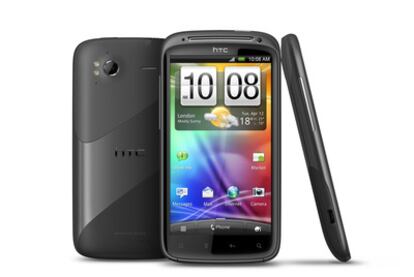Resource Sharing in Mobile Environments: the Next Frontier of Social Networking
Imagine yourself walking around in a foreign city with that nagging need to connect to the Internet?to update your blog, check email, or send a photograph you have just taken to a loved one. You are carrying your mobile phone enabled with GPRS and Bluetooth connectivity but your telecom operator is too expensive to use abroad. It is unfortunate that you are not aware of the free municipal WiFi access point just a few meters away?although your mobile phone is not WiFi enabled, it is sufficient to exploit a Bluetooth+WiFi terminal in your vicinity to relay your message to the free access point. Moreover, there goes a man within your Bluetooth coverage range, with a Bluetooth-enabled laptop, and a flat-rate UMTS subscription that is currently idle, but how do you identify that he is there? Or imagine driving your rented car and searching for parking lots in the city area: the car next to you hosts wireless solutions for point-to-point connectivity (e.g., IEEE802.11p) or for access to municipal wireless mesh (e.g., IEEE802.11s), but how do you exploit the short time when you are in direct range to download exactly what you need?
The above scenarios have one thing in common: they are already achievable by maximizing the potential of current technologies
Researchers have already recognized the need for middleware or horizontal support software that can be used across services and different application domains
To optimize the use of underutilized resources and make the solutions scalable, our concept is to proactively determine the subset of potentially available resources for the current coalition
The above scenarios have one thing in common: they are already achievable by maximizing the potential of current technologies available in the market and by fully exploiting wireless resources on mobile devices, which are currently underutilized. These cases also show the need for innovative services stemming from the social collaboration of mobile users, who can choose to share their resources, such as multiple wireless interfaces, storage devices, and user-generated content. We use the term opportunistic mobile services to describe this class of services that is based on random encounters with mobile users and exploits their available resources, especially their intrinsic mobility and usually high density in urban areas, to effectively create a space of shared resources.
Social sharing of resources in opportunistic mobile environments is undoubtedly beneficial in many application domains. So why is this technology not yet available in the market? The barrier has been a series of challenging issues such as the integration of heterogeneous wireless technologies, choice of the best available resource at any time, opportunistic collaboration of users and devices for a limited and transient interval of time, prediction of resource mobility, non-utilization degree, users' sharing attitude, and incentives for resource sharing. Researchers have already recognized the need for middleware or horizontal support software that can be used across services and different application domains. The design, implementation, and validation of open middleware for green (because it usefully exploits already available and underutilized resources), opportunistic, and social sharing are the primary goals of our Mobile Middleware Research Group at the University of Bologna, as demonstrated by and detailed in several papers recently published in international periodicals and conferences.
In particular, our group has been investigating, developing, and assessing innovative methodologies, architectures, and algorithms for novel middleware solutions based on self-organizing opportunistic coalitions, capable of exploiting the wireless proximity of randomly encountered mobile entities. To optimize the use of underutilized resources and make the solutions scalable, our concept is to proactively determine the subset of potentially available resources for the current coalition (context), and thus reduce the runtime costs of evaluating all possible sharing opportunities. Context determination depends on highly innovative indicators (e.g., the mutual mobility of users, which is estimated in a coarse-grained way and with no additional overhead by monitoring wireless signal fluctuation) and on the prediction of their evolution. To mention some practical examples of the results already achieved with this approach, the group has worked on opportunistic services for vehicular sensor networks, such as the dissemination of vehicle-related information via random encounters in dense urban areas (see the MobEyes project in collaboration with UCLA - http://netlab.cs.ucla.edu/cgi-bin/usemod10/ wiki.cgi-MobEyes). In addition, we have designed and implemented a middleware to extend Internet coverage areas via dynamic collaboration of mobile peers that share their connectivity resources provided by heterogeneous wireless interfaces (see the MMHC project - http://lia.deis. unibo.it/Research/MMHC/).
With the growing need of today's youth to be online anytime anywhere, we truly believe that our mobile middleware research activities will contribute to the realization of social sharing opportunistic services by reducing the associated costs. Our research could pave the way to the next frontier of social networking, i.e., dynamic community-oriented use of available resources in mobile environments, by fully exploiting the wide set of available resources generated by the ubiquitous presence of portable wireless devices.
Paolo Bellavista, University of Bologna. -www.atomiumculture.eu

Tu suscripción se está usando en otro dispositivo
¿Quieres añadir otro usuario a tu suscripción?
Si continúas leyendo en este dispositivo, no se podrá leer en el otro.
FlechaTu suscripción se está usando en otro dispositivo y solo puedes acceder a EL PAÍS desde un dispositivo a la vez.
Si quieres compartir tu cuenta, cambia tu suscripción a la modalidad Premium, así podrás añadir otro usuario. Cada uno accederá con su propia cuenta de email, lo que os permitirá personalizar vuestra experiencia en EL PAÍS.
¿Tienes una suscripción de empresa? Accede aquí para contratar más cuentas.
En el caso de no saber quién está usando tu cuenta, te recomendamos cambiar tu contraseña aquí.
Si decides continuar compartiendo tu cuenta, este mensaje se mostrará en tu dispositivo y en el de la otra persona que está usando tu cuenta de forma indefinida, afectando a tu experiencia de lectura. Puedes consultar aquí los términos y condiciones de la suscripción digital.




























































